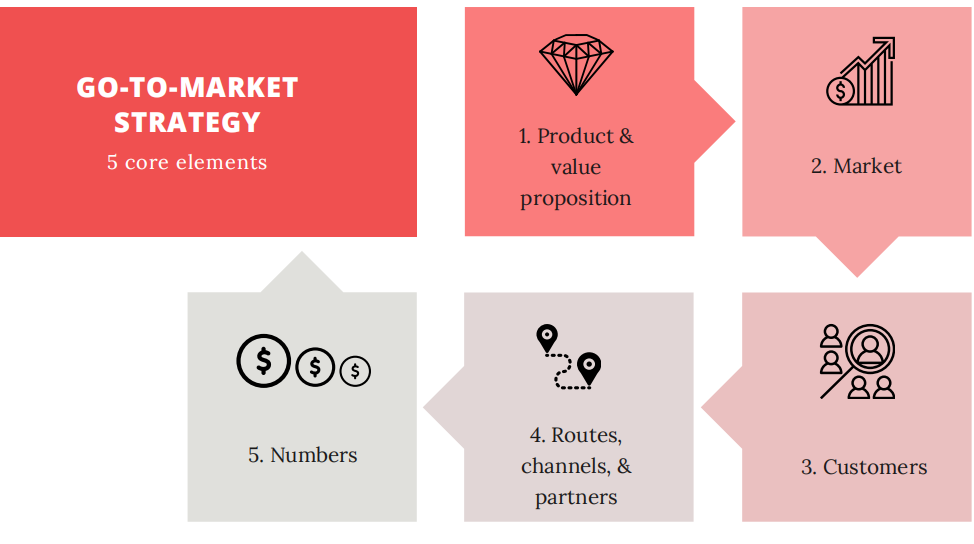Since Brexit, the UK Government has been striking new trade deals at a frenetic pace, with continuity agreements now signed with over 60 countries. Whilst many of these agreements are yet to be fully ratified, businesses can be reassured that ‘bridging mechanisms’ are in place to ensure minimal disruption and the continuity of trade until the agreements are finalised. In this article, we will provide an update on the UK’s new and upcoming post-Brexit trade agreements. We’ll also explore the benefits of exporting and look at reasons why you should look to exporting as part of your growth strategy to capitalise on these trade deals.
New and upcoming trade deals since Brexit
The full list of current trade agreements can be found here. On top of these, there appears to be further promising deals on the horizon. For example, on 31 January 2021, the government announced the UK’s application to join the Comprehensive and Progressive Agreement for Trans-Pacific Partnership (CPTPP). This is a trade agreement between 11 countries: Australia, Brunei, Canada, Chile, Japan, Malaysia, Mexico, New Zealand, Peru, Singapore and Vietnam. The CPTPP came into effect in 2018, and the UK would be the first non-founding country to join. If the UK’s application is successful, the advantages of being part of the CPTPP is that it will allow participant countries access to each other’s markets, coupled with the promise to either eradicate or reduce the bulk of the import charges and tariffs1.
Interestingly, the UK government is also holding separate trade talks with the US and New Zealand and we expect to hear about these negotiations imminently.
Of the many deals now struck with other countries, we consider the following to be of particular significance and opportunity for businesses looking to export overseas.
Australia trade deal
In late April, the UK and Australia agreed “the vast majority” of a free trade deal. Both countries will accelerate negotiations with a view to finalise the new trade agreement by June. This deal could increase a further £500m to UK GDP in the long term2.
Canada trade deal
Signed at the end of 2020, the UK and Canada’s temporary trade agreement is worth £20 billion. Both countries are currently in discussions, and are committed to finalising negotiations by the end of 2023. Until then, the temporary agreement provides certainty for UK businesses, allowing them to export goods and services to Canada with zero tariffs. The industries standing to benefit most from the deal include automotive manufacturing, as well as the food and drink sectors3.
Japan trade deal
Under the UK’s new trade agreement with Japan, the UK-Japan Comprehensive Economic Partnership Agreement (CEPA), we see major improvements in areas such as digital trade and financial services. On the digital side, these improvements entail cross-border data flows, the exclusion of data localisation requirements and a commitment to deploy a legal framework ensuring the protection of personal data. For companies importing and exporting goods, there will now be less paperwork and more favourable tariff rates, compared with the previous EU-Japan Economic Partnership Agreement (EPA)4.
Turkey trade deal
Under the new UK-Turkey Free Trade Agreement, the two countries will continue to benefit from preferential tariff rates, where goods traded originate from either country. The agreement encompasses industrial goods, coal and steel, agricultural products and processed agricultural products4.
Benefits of exporting
These trade agreements certainly offer a beacon of light during uncertain times. For businesses who were sitting on the fence about whether to export, these look promising.
Paul McIntosh, Founder and CEO of Bridgehead explains, “By selling your goods to other countries, you are reducing your dependence on your home market. Let’s face it, most businesses have had a challenging year and may have put their growth plans on hold to enter survival mode. Now is the time to capitalise on these new trade deals and revisit those growth plans.” Here, we remind business owners of the benefits of exporting and the many reasons why it could be great for your business:
- Not putting all your eggs in one basket – if you are solely focused on operating in one market, this can be risky. For example, consider the devastating effects that recession could have, if hitting that market. Selling to different countries allows you to reduce your dependence on any individual market. It’s all about spreading risk. Selling to different markets is also great for businesses who experience seasonal fluctuations in their sales pattern.
- Increase Sales – Exporting to different markets enables you to sell to beyond your domestic market and find new customers.
- Lower production costs – Businesses may be able to benefit from economies of scale through increasing their manufacturing.
- Increase the value of your business – as a business owner, if your long-term goal is to sell your business, then by operating in different markets, you will certainly increase the value of your business.
Exporting – Where do I start?
Most business owners and entrepreneurs have an insatiable appetite for growing their businesses, however they commonly encounter a number of obstacles. The benefits of exporting are clear, but the first of these obstacles is not knowing where to start. With that in mind, here’s our checklist for how you can get started with exporting.
Leverage online sales
This is a low-risk market entry strategy. Your investment is limited, and it gives you the opportunity to test the waters before making a full commitment. As and when your business secures orders from abroad, you can drop ship directly to your end-customer. When sales increase, you can look to use local fulfilment centres. These centres will import your goods, hold your stock, package and dispatch your goods on demand. You’ll also be able to demonstrate a healthy sales pipeline.
Have a go-to-market (GTM) strategy
Exporting is a big step to take. Only 1 in 5 businesses succeed in international expansion. Those who make it, have a detailed go-to-market (GTM) strategy for the market they want to export to. A GTM plan covers five key critical areas which you need to address, these are: your market(s), customers, routes/channels/partners, numbers and your product or service value proposition.

Ask for help
The good news for small businesses is that there are a lot of companies you can approach to seek advice from. Government support agencies organise missions for UK businesses to go and visit export locations, attend trade fairs, meet prospective clients and local agents. The DIT (Department for International Trade) can offer high level advice and put you in touch with relevant contacts.
Here at Bridgehead we have a team of experts to help take your products or services into markets, as well as our free Discovery Lite monthly newsletter to provide industry reports, insights on expansion, webinars & more.
Get financial support
Exporters are often confronted with financial constraints when securing and fulfilling export contracts. Ensure that you are familiar with foreign exchange, local regulations, tariffs, taxes etc: Any High Street bank should be able to offer trade finance products, designed to fund exports, as well as protect you against any non-payment or late payment from your trading partner.
Post-Brexit: opportunity for companies to export
The full, long-term impact of Brexit for British exporters still remains to be seen; however, the new favourable trade deals should be seen as an opportunity for companies to export. We can only foresee increasing opportunities emerging in the future. If you have desires on international expansion, exporting is often the least risky option, allowing you to dip your toe in the water, before making a full commitment. At Bridgehead, we don’t just offer advice, we can help your business grow by securing international orders and getting your products in the right distribution channels. We can make things happen for your business. Our guarantee is quantifiable results in 90 days. Are you ready to grow? Call us today.
Sources:
1. BBC
2. BBC
3. Gov.UK
4. EY
Further insights on international expansion
If you enjoyed our article on the benefits of exporting post-Brexit, join our Discovery Lite portal for free below. You’ll get access to a monthly insights magazine and bonus downloadable materials to help your business reach new markets:
Read next:
Top 10 Go-To-Market Tips e-book
Critical Success Factors for Effective Global Expansion Post COVID-19
Let’s connect











